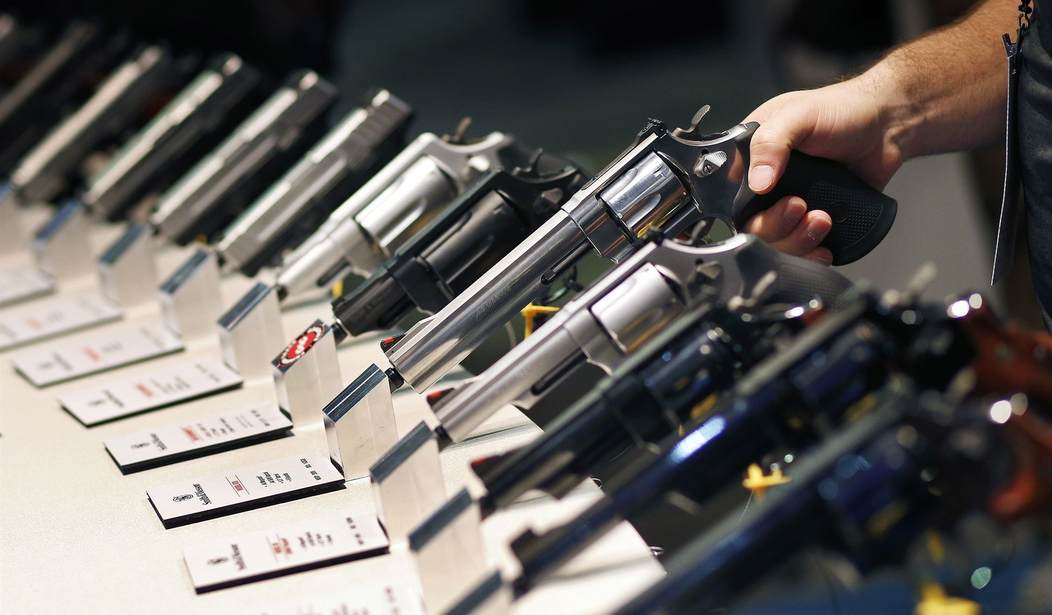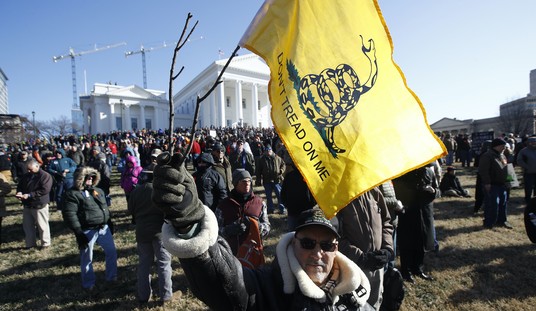Red flag laws are one of those things that should scare the hell out of all of us. After all, they’re the kind of thing that sure as hell sounds like a decent idea to a whole lot of folks. After all, you’re talking about taking guns from people who are dangerous. How can you reasonably oppose such an idea?
However, the issue is that the term “dangerous” is pretty vague. We’re not necessarily talking about potential mass killers here–planning a mass shooting is already a crime and can be treated as such. Instead, we may well be talking about folks who say a few things that make their friends or family a little uncomfortable.
So yeah, red flag laws are a problem.
Despite that, though, some in the Republican Party support them, which is becoming an issue in the Nevada GOP senate primary.
When it comes to gun issues, there isn’t much daylight between the top two candidates in Nevada’s 2022 Republican Senate primary.
But there’s one topic that Sam Brown, a veteran and political newcomer to Nevada, is hoping to use as a wedge against frontrunner Adam Laxalt — so-called “red flag” laws, which allow police to temporarily confiscate a person’s guns if they pose a threat to themselves or others.
The pair have sparred on the issue almost entirely indirectly, as Laxalt has cast his run as exclusively against incumbent Democrat Catherine Cortez Masto, rather than a primary against Brown.
…
As attorney general, Laxalt staked out a public position as a staunch defender of gun rights and opponent of firearm control measures. Laxalt has been endorsed twice before by the National Rifle Association, the last of which came in 2018 when the group gave him an “A+ grade.”
Still, in 2018 a study committee — led by Laxalt’s office and commissioned amid the immense political pressure created by the shooting at Marjory Stoneman Douglas High School in Parkland, Florida — drafted a series of recommendations meant to decrease the likelihood of school shootings.
Among those recommendations: that lawmakers should study other similar protective order laws across the country and consider enacting similar policies in Nevada.
Laxalt’s opponents, including Brown, have pointed to the inclusion of those recommendations — interpreted at the time and since as support for the idea of red flag policies more generally — as something of a contradiction, especially after Laxalt sharply criticized red flag laws during a speech to the NRA in 2017.
And, in fairness, it’s kind of hard not to interpret that recommendation as backing red flag laws. I mean, what other kind of protective order are we talking about? Nevada, like every other state, has a law already on the books that allows the state to admit someone to a mental health facility if they’re deemed to be a risk to themselves or others, so he couldn’t have been talking about that.
Plus, it’s not like Laxalt would be the first politician to flip-flop on an issue.
Right after Parkland, people were really upset and looking for a way to stop it from happening again. They looked around and, for a lot of people, red flag laws looked like the answer. I mean, it’s not like there weren’t warning signs that the killer there was likely to be a problem.
I sure considered it.
However, when the rubber met the road, what we could see was that these laws had major problems. People had their guns taken and then got their day in court. That’s a big issue for me. Couple that with the fact that the decision could be reached without a single mental health expert ever talking to the individual in question, thus making it so people who presented no threat could be deemed as an issue and be denied their Second Amendment rights, and you’ve got something none of us could tolerate.
If Laxalt doesn’t want those laws, he should have been more careful about his wording. Now, it just might bite him in the posterior.







